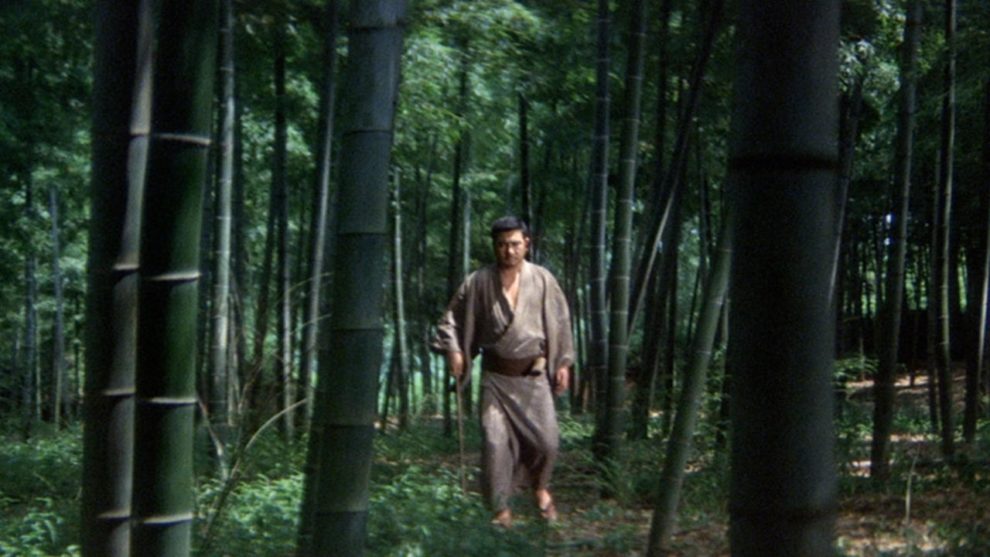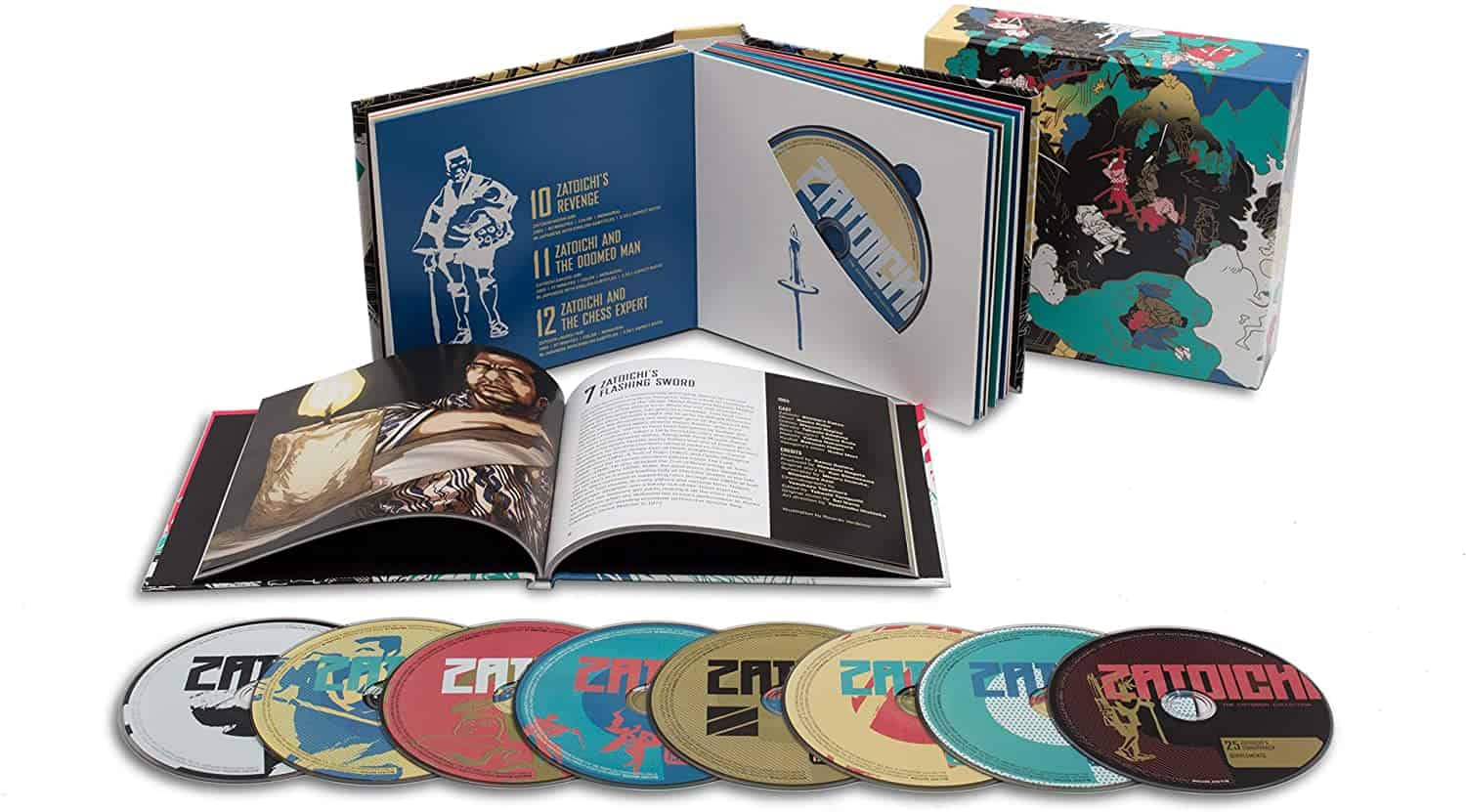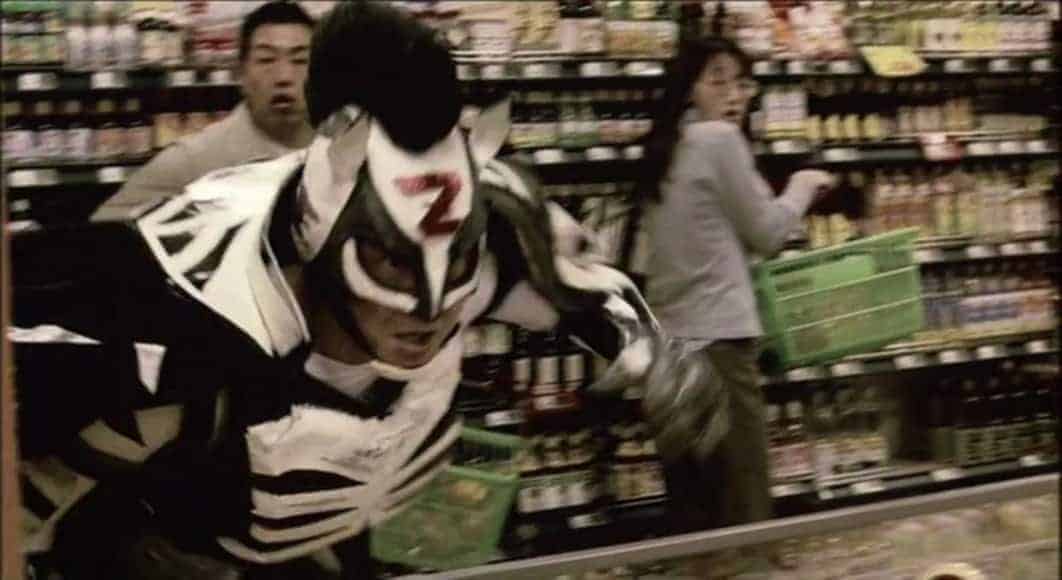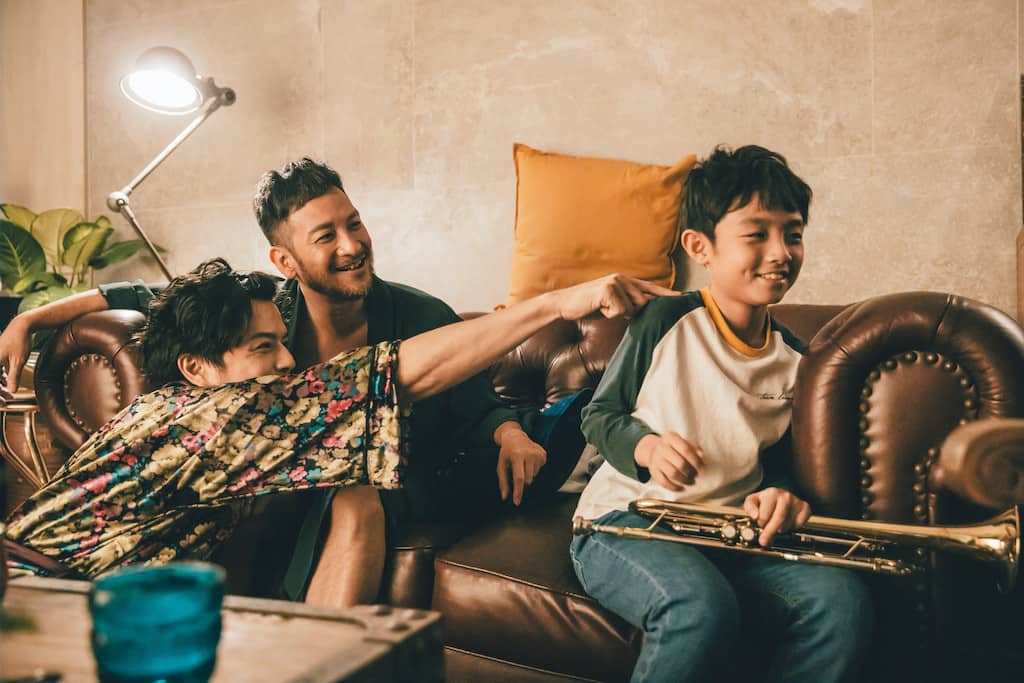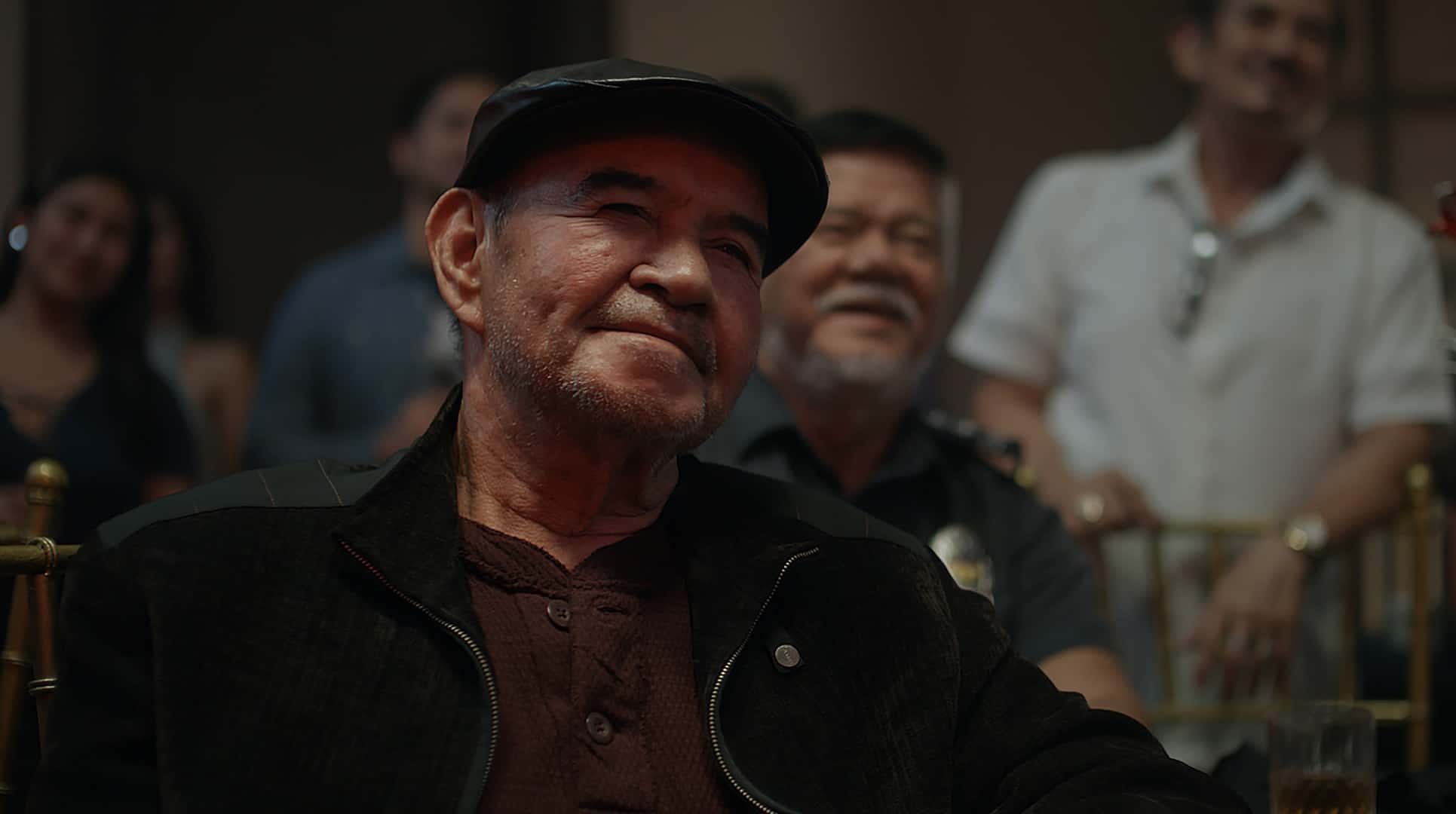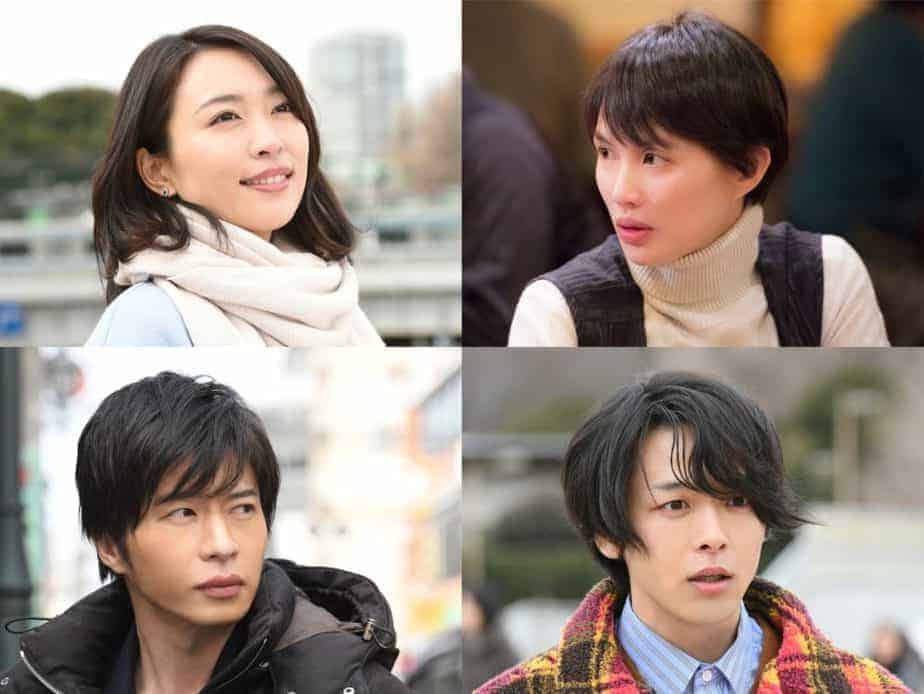One year after the last entry to the series, “Zatoichi Challenged”, once again Kimiyoshi Yasuda took over directing duties for the overall eighteenth film in the franchise, “Zatoichi and the Fugitives”. Having helmed three quite interesting films surrounding the blind masseur/ swordmaster played by Shintaro Katsu, Yasuda would once again focus on the foundations of the character, questioning the ways of the hero and whether bloodshed always finds its way towards him or if he actually seeks it. While “Zatoichi's Cane Sword”, Yasuda's last feature within the franchise, saw Zatoichi losing his most priced possession, thus showing if he was able to live without this side of his character, “Zatoichi and the Fugitives” gives the blind swordsman yet another opportunity to change his ways.
Buy This Title
Once again, Zatoichi (Katsu) is on the road and makes his way into a village, where a yakuza boss by the name of Matsugoro (Hosei Komatsu) controls the silk business, with a large group of men making sure everyone follows his orders, and many of the young women working in his silk weaving factory under terrible conditions and against their will. However, after a run-in with a group of fugitives on the run, led by Ogano Genpachiro (Kyosuke Machida), who knows the masseur from a previous encounter, Zatoichi meets the local doctor, Junan (Takashi Shimura), who invites him to stay at his home and work with him. Since his skill at massaging people fits right into his medical practice, the blind swordsman is more than willing to make some money and finally be able to make a reputation for himself aside from being a sword fighter. Additionally, he is impressed with the doctor's empathy for his patients, even offering them gifts or medication, when they cannot afford them.

However, as the group of fugitives blackmails Matsugoro into hiding them until an inspector has passed through town, it does not take long until Zatoichi is obliged to take up his sword again. As he makes it his business to help a woman escape the clutches of Matsugoro and his men, the boss is furious and employs the criminals to help him get rid of Zatoichi once and for all, even though Ogano knows about his target's reputation and his skill as a swordsman.
While Yasuda's feature certainly offers the usual ingredients of the franchise, with some of the fights being quite astounding and Kazuo Miyagawa's cinematography highlighting the cruelty and swiftness of these scenes quite well, it also seems to refer to an internal conflict of the main character. In this case, the extremes of his being, compassion and violence, are somewhat mirrored in the opposition of Junan and Ogano, who are additionally related, but estranged due to the latter's crimes. Although there is no question about who Zatoichi is going to have to face in the finale, Kinya Naoi's script seems to imply how the appearance of the blind man, his past and present action, contribute to the situation getting out of hand, culminating in a final confrontation which has to be among the bloodiest of the entire series.
Among the features which make this feature quite interesting and worthwhile is also the kind of performance Katsu delivers in the main role. While one might expect him to phone it in, especially after having done to many movies playing the same character, the kind of commitment he brings to certain scenes, while also giving seasoned actors such as Takashi Shimura their space to also give great performances, has to be emphasized. Among the conflict of Zatoichi, his issues with the choices he has made and the men he has slain, decisions which have repeatedly come back to haunt him, we also get an insight into his perception of the world, for example, when he tells Junan's daughter about the time he went blind and how he lost his memory of color. While the overall narrative of “Zatoichi and the Fugitives” could have worked without these additions and scenes, there is something quite fascinating about discovering these layers to a character who, by now, is quite well-known to the audience.
In the end, “Zatoichi and the Fugitives” is another great entry into a franchise, and possibly the best contribution of director Kimiyoshi Yasuda to the story of Zatoichi. Serving as a kind of addition to the story of “Zatoichi's Cane Sword” it employs the qualities of the series, the sword fights and the images of the landscape, while also adding a few layers to the main character and his inner conflict.


